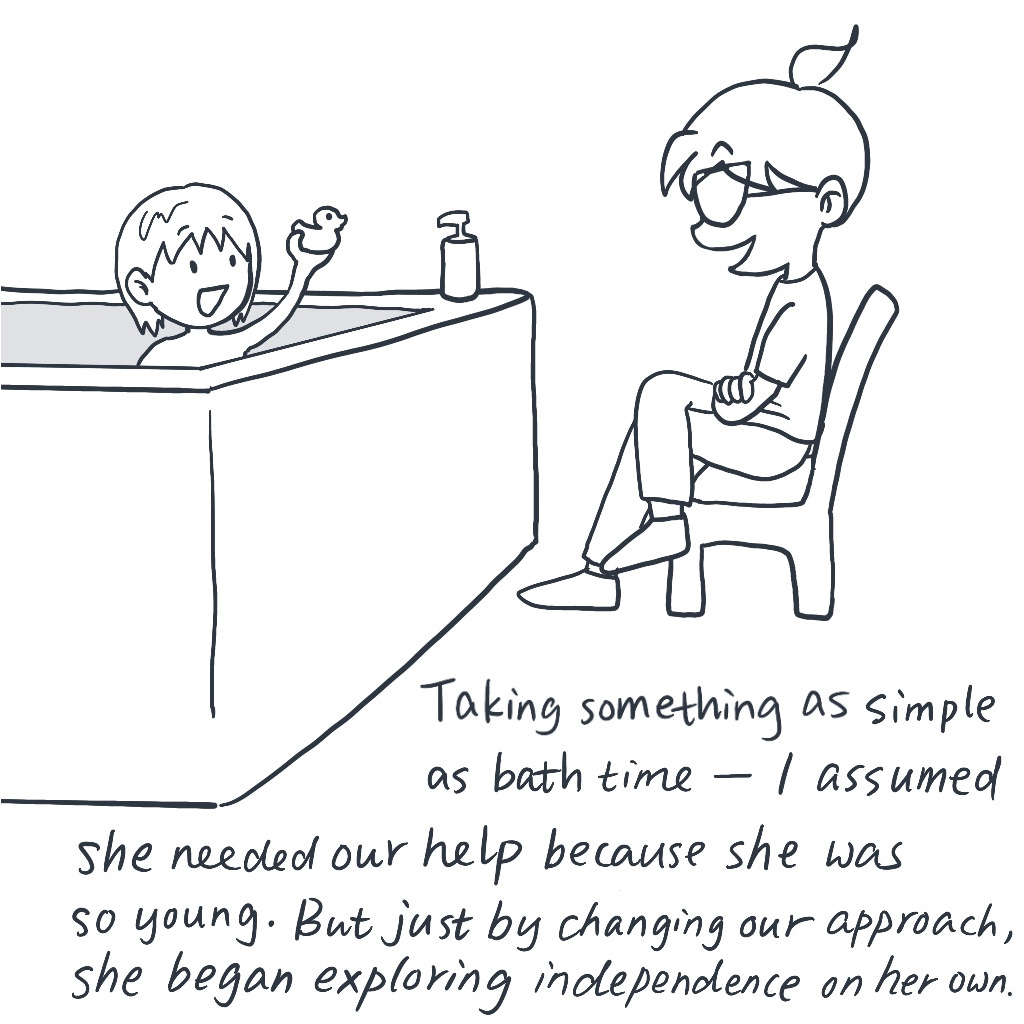Memolines ~ When we “step back,” our child begins growing independently
Sometimes what children need most isn’t more help from us, but more space to discover what they can do themselves.
The other night at bath time, my toddler pointed to her bottle of body wash and insisted on bringing it into the tub. I figured she wanted me to help her use it. But she squeezed some onto her hands and started washing herself—scrubbing her arms, her belly—very focused. Watching from outside the tub, I suddenly realized: she has been observing how we washed her this whole time and was ready to try it herself. If I had jumped in to help like I normally do, I would have completely missed this milestone.
Early on, she was scared of bath time. I had to climb into the tub with her and sit behind her while she played with her rubber duck. I would then rinse her off with the handheld shower, and by the end, I was always soaked.
When my husband took over baths, he did things totally differently. He sat beside the tub and chatted with her while she splashed around. When she was done playing, he rinsed her off and lifted her out.
I loved this approach. I started doing the same thing—sitting on the edge of the tub, making casual conversation: “Where’s that duck going?” She plays happily while I stay dry and relaxed.
This whole thing reminded me of feedback my old manager gave me: “You’re super reliable, which is great. But the problem is everyone always comes to you with their issues. When you become the person who fixes everything, you can’t step back, and no one else gets to develop their problem-solving skills.” It took me a long time to understand what he meant. Whether you’re on a team or leading one, doing everything yourself actually hurts everyone’s growth. It’s exactly like always washing the kid—they never learn to do it themselves.
Our family works well now because my husband and I tag in and out with parenting—whoever’s free takes over, instead of everything falling on mom.
For bedtime, my husband taught her: “If you can’t fall asleep right away, just close your eyes and rest. You can whisper to yourself or hum a little song.” Now she’s totally fine saying goodnight and settling in by herself, even if she doesn’t fall asleep immediately. On weekend mornings when we want to sleep in, she’ll wake up and babble to herself, giving us time to make breakfast before getting her up. When we’re not actively playing with her, she finds ways to entertain herself—singing, hiding under blankets, playing with her toys—instead of constantly needing our attention.
This independence develops gradually through everyday moments. My husband and I believe children are meant to forge their own paths. Our job isn’t to make them perpetually dependent on us, but to gradually equip them with the skills to navigate life without us. If we constantly think “my child needs me,” we’ll struggle to give them space to try things independently. But when we trust their capacity to grow and create the right environment for exploration, we’re often amazed by her capabilities.
Take something as simple as bath time—I assumed she needed our help because she was so young. But just by changing our approach, she began exploring independence on her own.
Sometimes what children need most isn’t more help from us, but more space to discover what they can do themselves.


